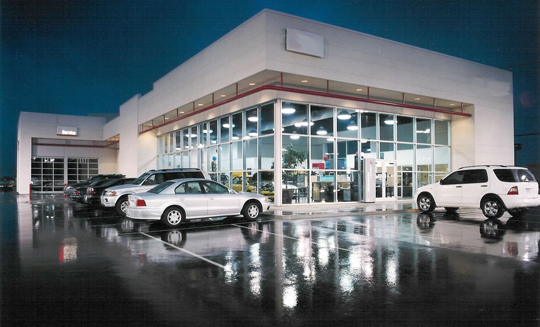Why “Putting Your Hands On The Vehicle” Is Costing You Sales
Brian Kidder
27 August 2019
There’s a big difference between having sound fundamentals and being too stubborn to adapt to a changing landscape. Fundamentals, by definition, are old. Time-tested. Beware the man offering you a “new” fundamental.
In sales, the fundamentals have not changed; we still build rapport, we still isolate objections, we still trial-close. These won’t ever change, because they are in-line with the human psyche, and its needs leading up to a purchase.
What has changed is the technology we use in meeting those fundamental psychological needs. In years past, customers looking for a new vehicle would visit 5, 6, even 7 or more dealerships before making a purchase. Technology has changed that. Today, and we’ve all seen the statistic, customers visit, on average, 1.6 stores before making a purchase. To simplify that, 100% visit at least 1 store, and some of those actually visit 2 and very few, 3. Here’s what most of them have in common: They call before they come in, better than 85% of the time.

85% of customers call before coming in.
Being vendors to auto dealerships comes with some advantages. One is that we get to hear and see a broad cross-section of how different stores handle the same processes. We get to see what works, and we get to see what we know does not work, still being done. Perhaps worst of all, we see those who keep doing what no longer works with near-religious fervor. One technique we run across over and over: The sales person that needs to let the customer off the phone, so they can go “put their hands on the vehicle,” and then call the customer back.
“Today, technology has changed the game. That customer calling your store has most of the information they need to make a purchase at their fingertips.”
This is sales suicide nowadays. Even 10 years ago, this technique was advantageous, because online inventories were as likely accurate as not, and inviting a customer in to test drive a vehicle without first personally verifying its existence on the lot was often a recipe for an upset customer if it turned out the vehicle had been sold. This also was a useful first step in gaining the customer’s trust, and in generating rapport.

Today’s consumer has most of what they need to know before they call.
Today, technology has changed the game. That customer calling your store has most of the information they need to make a purchase at their fingertips. They are a much better-targeted customer than ever before, because they searched online for what they want, and the search engine returned what you have. And even in the best of scenarios, it also returned a lot of what your competitors have.

So if they’re calling you, and they are about to make a purchase, you most likely only have this one opportunity to shine. These customers, because they are so well-targeted, buy half the time when they get in front of a live sales person. Hanging up with them and looking to call them back is a crap shoot at best. How many attempts are you going to make when they don’t pick up? What if your competitor has them on the phone and is setting them an appointment to come in today? You just lost your opportunity.
By confidently setting an appointment with the customer now, not only do you get a 50/50 shot at their business, but you also stop them from calling your competition. An NADA study found that 92% of the time, when a sales professional sets an appointment with a customer, they stop shopping until they come in. And when they come in, they buy half the time.
Clearly, there are some instances where you simply must hang up and call the customer back. Those instances are very few, and far between. If we make that the rare exception to the rule, sales increase, and we watch it happen every month. If you need to call back, do what you can to pursue an appointment first. On the call, make sure you’re telling the customer that if anything changes, you’ll call to let them know, and ask them for the same courtesy. Now, if you see that the vehicle sells before they come in, or your inventory was off, you have a reason to call them back, and they will appreciate the respect for their time. And you can now gently steer them into another opportunity.
